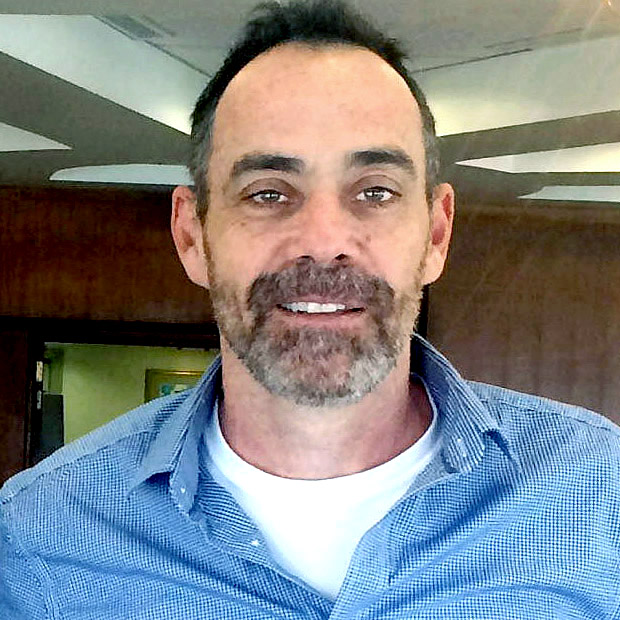James G. D’Angelo
Founder of Congressional Research Institute
In June 2014, political scientist James D’Angelo became the first to investigate the 1970 sunshine reforms as a principal driver of inequality, incarceration rates, the debt, excessive spending, climate inaction, partisanship, police abuse, message voting, closed rules, lobbyist capture etc. In early 2015, along with Harvard colleague David King and BC assistant professor Brent Ranalli, he founded CRI to support this and other work focused on improving representation.
by Conner Davidson – October 17th, 2020
Legislative accountability benefits the powerful.James D’Angelo 2016 – Twitter
About James
The Intimidation Game
James is a political scientist based in Washington DC and Cambridge, Massachusetts. Since 2014, the ex-NASA scientist has focused exclusively on democratic reforms aimed at improving representation. While his focus is on the US Congress, he also travels widely, holing up for months in countries like Uganda, Kenya, Mexico, Brazil, Italy, and Vietnam. Despite the disparate outcomes, he finds striking similarities between the various political systems, where the common thread is an unexplored amount of intimidation unleashed on government actors by powerful groups both inside and outside government.
His focus on intimidation has led him to investigate the benefits of legislative secrecy which few realize is supported by the Constitution. And the data shows, the more open a government process is, the more lawmakers are subject to often expensive threats unleashed by powerful individuals or groups.
The first known example of this problem comes from Stuart England in the mid 1600s when the Members of Parliament fled into the hills in fear of the King’s henchmen. The House of Commons turned to secret committees to protect themselves from the King’s wrath. Similar dynamics were in play in the 1700s when American legislators where chased down by vigilantes and impromptu militias, leading to the decision by the Framers to write the Constitution behind closed doors. And, just as secret ballots protect constituent voters from death threats (Edgar Allen Poe was killed on election day), legislators protected by secrecy and closed doors free themselves from the terrifying influence of money, attack ads, and power.
The United States saw this problem in reverse in the 1970s. Without a single constituent demanding increased transparency, the US Congress switched from near absolute committee secrecy to transparency almost overnight. The push came from both sides of the aisle. The Republicans were following the 1962 Public Choice Economics work (funded by major oil corporations) which sought open legislatures. Their goal as stated clearly in James Tullock’s seminal 1950s paper, was a way to allow for minority control of government - i.e. powerful minority control. On the left, the Democrats sought open committees to strip power from the Southern Blue Dog (Republican) Democrats. Regardless of the reason for the change, the results have been disastrous, and have resulted in problems the Framers anticipated 200 years earlier. The sunshine laws have allowed for special interest capture of government while leading to angry hyper-partisanship and pernicious gridlock.
James’ prior experience involved work for NASA (as a design engineer on the POLAR/WIND spacecraft), public lectures on cryptography (mostly at MIT), and environmental research in Gabon (stationed in Lope National Park). He gave his first talk on the topic of transparency at Harvard in 2016 with Professor David King and Brent Ranalli. And his first academic paper on the pitfalls of sunshine was published in Foreign Affairs Magazine in 2019. It was broadly endorsed by scholars and subsequently presented in Congress by Princeton scholar Frances Lee.
A Five-Dollar Solution to Government
The technologist’s fear of appearing ignorant about Congress didn’t stop him.
On November 3rd, 2014, the same day as he received a first-prize award at MIT for a blockchain-based solution to climate change, James D’Angelo released a video about Congress – something he knew little-to-nothing about.
In the piece, he claimed that nearly all of our modern problems with government had their origins in an overlooked congressional reorganization act which came into effect in 1971. More absurdly, he explained they could all be fixed with a five-dollar cardboard box.
“I should not be the one doing this. I am completely unqualified,” he said when I interviewed him in a shopping mall in Uganda in September of 2018. “I was even more unqualified back then, when I launched that video. I mean, come on, when I started looking at Congress and their sad response to inequality and climate change, I barely knew the difference between the Senate and the House. And here I was claiming I had figured it all out.”
I should not be the one doing this. I am completely unqualified.
Outside of some youthful anger directed at the U.S. war in Iraq etc, James’ history with civics education or Congress was near zero. He managed to avoid government classes in high school. And in university he studied electrical engineering and biology.
Receiving his his Masters in EE in 1990 he launched immediately into a NASA project focused on collecting better data on the sun. There he worked with an old cadre of MIT professors who had cut their teeth on the Voyager projects. In 1995, his NASA project launched carrying with it James’ newly designed Analog-to-Digital converter for space applications.
Since then, he has worked on dozens of research projects in the tech world with the occasional forays into biology. And his 2013 work on a decentralized, software-based identity system for refugees got considerable attention by folks at the UN.
”Refugees suffer from having no reliable form of identity. This hurts them when they show up at camps, seek medical attention or look to emigrate elsewhere. Often, because of the lack of a good id system, the victims of violence are indistinguishable from the perpetrators.”
But when James’ son, Enrico, was born in 2011, everything changed.
James ponders that moment. At 53-years-old, he still sports thick black hair and an athletic build, but any confusion on his age is betrayed by the thick shocks of gray in his beard. He pulls a sip off his large iced coffee. Legs crossed, hands gesticulating, he is dressed in army shorts, a black T-shirt and a Fenway-park baseball cap.
“When Enrico was born, suddenly everything had much more urgency. Climate change was more urgent. Partisan anger was urgent. Income inequality was terrifying.”
This terror drove him to begin a pattern of going on long walks – his iPod loaded with audio books. “I felt like an idiot, but I had to attack these issues with government. I listened to books by the right and the left. I read Francis Fukuyama, Fareed Zakaria, Niall Furgusen, Elizabeth Warren, Norm Ornstein, anything. But wow, because I knew so little about government and economics, a lot of that stuff made no sense to me. It made me ADD about the whole thing. I’d start one book, get lost, and then get terrified and then start another.”
But to him, one peculiar pattern began to emerge. “In the first chapter of all of these books I started to hear a familiar refrain: ‘Something happened in the seventies...’”
“For months, I kept hearing it. Elizabeth Warren talked about how male wages stagnated in the 1970s. Reich talked about inequality. Stiglitz talked about government ineffectiveness. Hacker and Pierson talked about amnesia. Drutman talked about the rise in lobbying, etcetera.”
And then one day as I was walking around the reservoir in Brookline, it all hit me like flash. I literally got goosebumps. I had read years before that Congress had switched from closed voting to open voting in the early 1970s. And I remember back then being blown away that I had never heard that before. As ignorant as I was about government, I found the notion of voting publicly scary.”
James’ eyes light up as he recalls the moment it all dawned on him.
“My first reaction was that if I was a member of Congress and I was voting in front of the TV cameras, I would be afraid to vote against the wishes of my friends or my family.”
“But then I thought about the pressures of interest groups, kings, president’s, lobbyists, etcetera. I stopped in the middle of my walk. I pulled of my headphones and I thought: ‘What if that single change did all of this? What if all of these problems from the 1970s are caused by transparency?”
Legislative accountability benefits the powerful.
“I downloaded everything I could find on the sunshine reforms. But there was so little. When I started, I was sure that someone had written this all up into a clear paper. I was sure that I’d find something that said something like ‘Transparency causes Inequality’ or ‘The Sunshine Reforms are Driving Climate Change.’ But there was nothing like that anywhere.”
“But the more I looked, the more evidence I found. The correlations are striking. The reports are dead on. Its really remarkable.”
A couple months later, the technologist put all of his research and claims into a video, but he was afraid to launch it.
“I had shown the piece to friends for a couple weeks and they all liked it. But none of them were experts on Congress. In my mind I was certain I had missed something – I had to be wrong.”
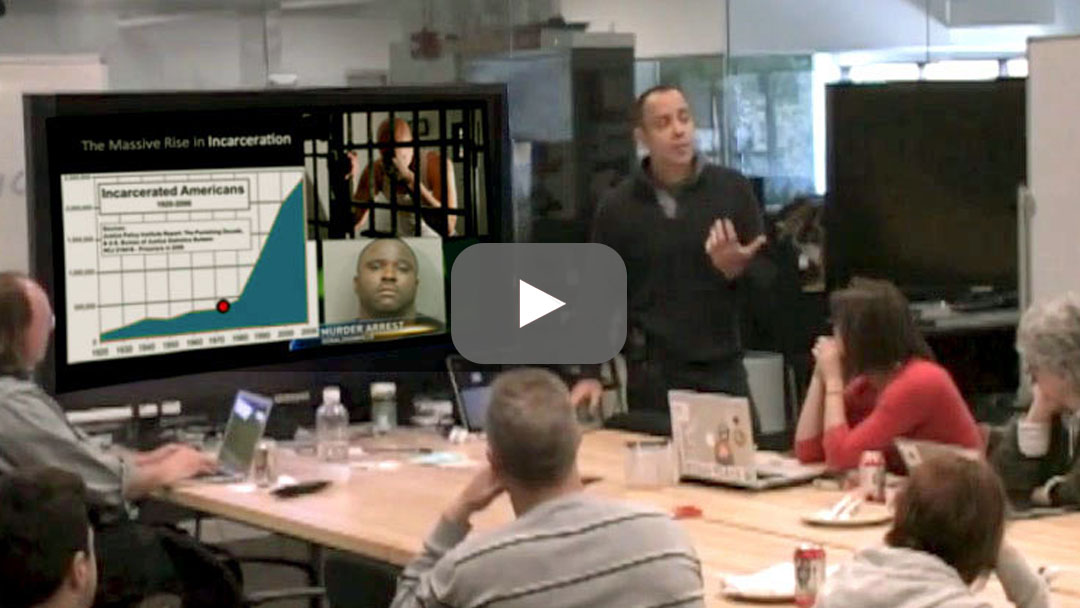
Problems with Transparency - MIT 2015

Problems with Transparency - MIT 2015
His fears certainly stemmed from the innate controversy of his claims. The solution that James saw was to push back on a sacred institution of democratic government – transparency. To him, the way to curb the undo influence of special interests was, to make Congress darker not brighter. He was advocating for smoke filled rooms and closed doors.
On the day of the launch, I sat there with my finger on my mouse, ready to delete the video. I was sure my feed would be flooded with comments about how stupid I was.”
“But it was mind-blowing. The video quickly became the most popular video on my channel and the comments were overwhelmingly supportive.”
The video, titled “The Cardboard Box Reform” is now just 500 views short of a hundred thousand. And it has generated almost two-thousand likes and just thirty down-votes.
“Clearly the success of the video encouraged me. It inspired me to dig deeper, research more and find out if I was really right or wrong. It also led me to seek out congressional scholars, and the only living scholar I could find who had written about the 1970 Legislative Reorganization Act was just down the street for me. David King was alive and working at Harvard.”
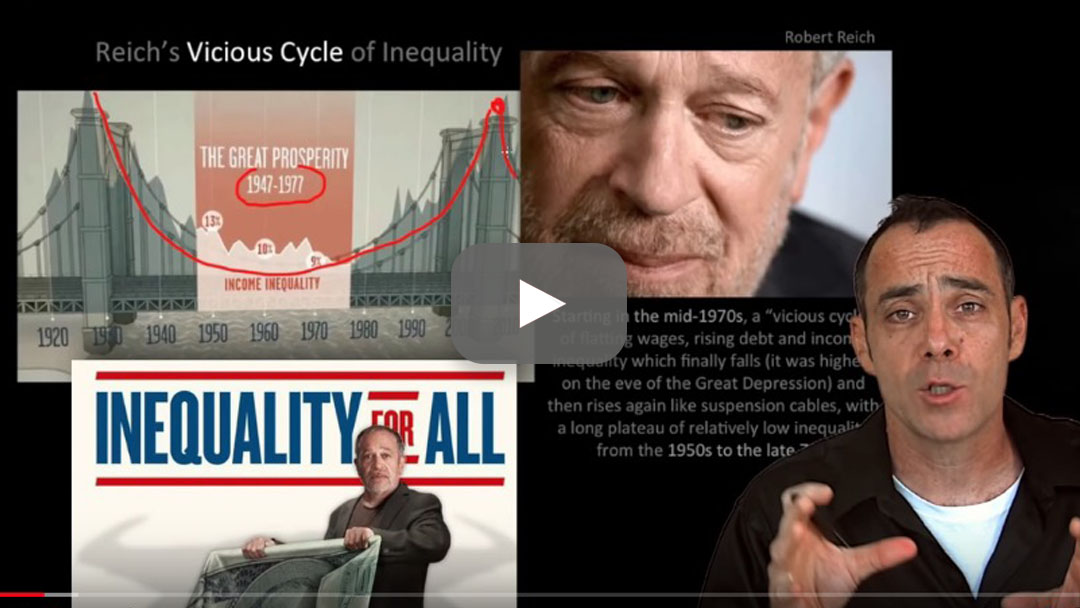
The Cardboard Box Reform - 2014

The Cardboard Box Reform - 2014
James recounts his first meeting with the Harvard scholar. “I think we became partners in five minutes. He slapped his head and said ‘oh man, I thought this public voting might cause a problem.‘”
“With David on board, things really cooked. But it wasn’t for another year that all the pieces started to fall into place. We could started to understand the weaponization, the gamesmanship, and perhaps most importantly, the single notion that legislative accountability benefits the powerful.
Publications
September 2023: James D’Angelo & David King published “The 1970s Sex Scandal that Sent Income Inequality Soaring” in Inequality Magazine. It addresses the difficulty transparent democracies have taxing the wealthy.
June 2023: James D’Angelo published “Publius and The Evil Geniuses of Darkness” in Divided We Fall. It describes how transparency drives partisanship.
July 2020: James D’Angelo published “How Lobbying Killed George Floyd” in Inequality Magazine. It addresses the problem of police accountability.
July 2019: “Transparency is a Weapon that is Ruining Congress” – Fulcrum.
July 2019: “Congressional Pay is a Victim of Excessive Transparency” – LegBranch.
May 2019: “The Dark Side of Sunlight” - Foreign Affairs Magazine. Coauthor Brent Ranalli.
December 2018: “The Sunshine Reforms and the Transformation of Congressional Lobbying” – CRI. Coauthors Brent Ranalli and David King.
April 2017: “The Origins and Impact of Transparency in US Legislatures” – MPSA Conference. With David King and Brent Ranalli. Discussants Jason Mycoff and Scott Adler
February 2017: “Separating the Siamese Twins of ‘Good’ Governance” – CRI. How increased transparency does not improve electoral accountabiity.
Talks and Presentations
April 2020: “Introducing Brubery; Bribery’s Evil Twin. And how legislative transparency leads to zero cost corruption.” – West Point Talk delivered via Zoom. Invited by Professor Michael Wright. Talk was not recorded.
July 2019: “Transparency and its Effects on Lobbying in Parliament” – EU Delegation to the United States. Invited by Maria Zinutti. Talk was not recorded.
April 2019: “The People in Charge? Transparency and Representation in Modern America” – United States Military Academy West Point. Two-days of lectures hosted by Professor Michael Wright. Talks were not recorded.
March 2019: ![]() “What is Wrong with Transparency?” – Unrig Conference, Nashville. Moderated by Lawrence Lessig.
“What is Wrong with Transparency?” – Unrig Conference, Nashville. Moderated by Lawrence Lessig.
Oct 2018: ![]() “The Pitfalls of Government Transparency – A Conversation” – University of Florida Law School. Hosted by Mark Fenster.
“The Pitfalls of Government Transparency – A Conversation” – University of Florida Law School. Hosted by Mark Fenster.
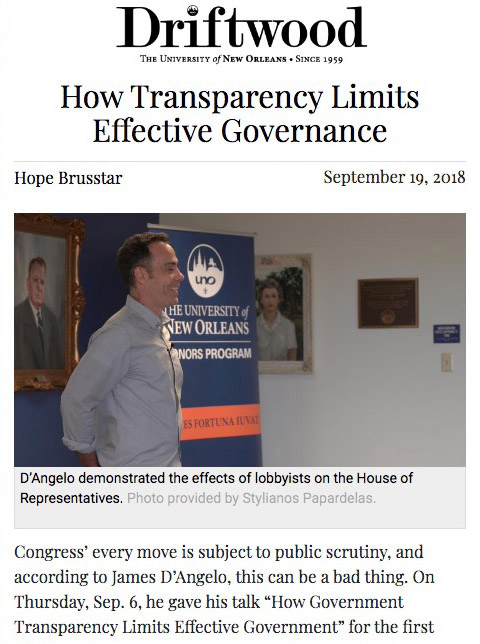
Hope Brusstar 2018 – How Transparency Limits Effective Governance

Hope Brusstar 2018 – How Transparency Limits Effective Governance
Sept 2018: ![]() “The Overlooked Constitutional Right to Secrecy” – University of New Orleans. Hosted by Chris Surprenant.
“The Overlooked Constitutional Right to Secrecy” – University of New Orleans. Hosted by Chris Surprenant.
Nov 2016: ![]() “The Perils of Sunshine” – Harvard University. A conversation with David King and Brent Ranalli.
“The Perils of Sunshine” – Harvard University. A conversation with David King and Brent Ranalli.
May 2015: ![]() “The Intimidation Oversight” – CRI. How the NRA and other special interests benefit from congressional transparency.
“The Intimidation Oversight” – CRI. How the NRA and other special interests benefit from congressional transparency.
October 2014: ![]() “The Cardboard Box Reform” – CRI. Original video discussing how Congressional Transparency Drives Inequality, Climate Inaction, Partisanship, the Debt and other problems
“The Cardboard Box Reform” – CRI. Original video discussing how Congressional Transparency Drives Inequality, Climate Inaction, Partisanship, the Debt and other problems
Interviews:
2019 The Case for Less Transparency – John Adams of Dark Money
2019 A Real Solution to Money in Politics![]() – Matt Orfalea
– Matt Orfalea
2018 James D’Angelo & Corrupt Transparency![]() – Brigida Santos
– Brigida Santos
2018 One Easy Way to Stop Corruption in Congress![]() – Brigida Santos
– Brigida Santos
2018 How Lobbyists Took over Congress![]() – Abby Martin
– Abby Martin
2015 Transparency in Congress Gives Power to Wrong People– Bruce Skarin
Citations
2019: Testimony before the Select Committee on the Modernization of Congress – Frances Lee (Princeton).
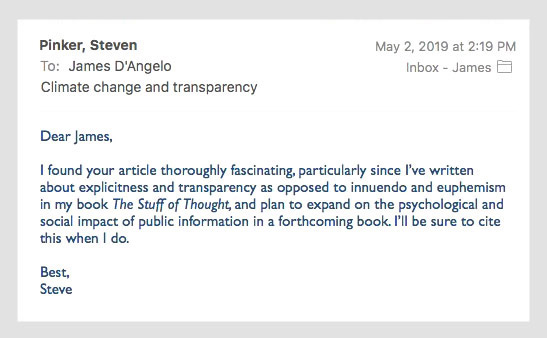
2019 email from Steven Pinker (Harvard)

2019 email from Steven Pinker (Harvard)
2019: Public Endorsement – Francis Fukuyama (Stanford).
2018: Transparency’s Ideological Drift – David Pozen (Columbia University)
2018: America Compromised – Lawrence Lessig (Harvard)
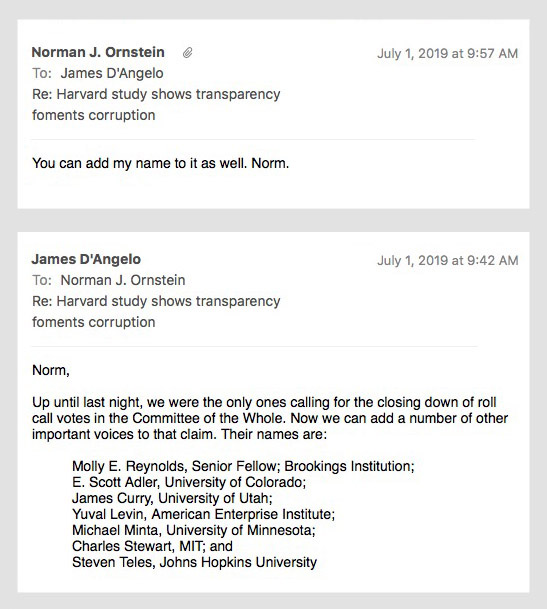
2019 email exchange with Norm Ornstein (AEI)

2019 email exchange with Norm Ornstein (AEI)
2018: Rethinking Sunshine – David Heald (Glasgow University) – Berlin Conference
2015: Secrecy and Publicity in Votes and Debates – Jon Elster (Colombia University)


